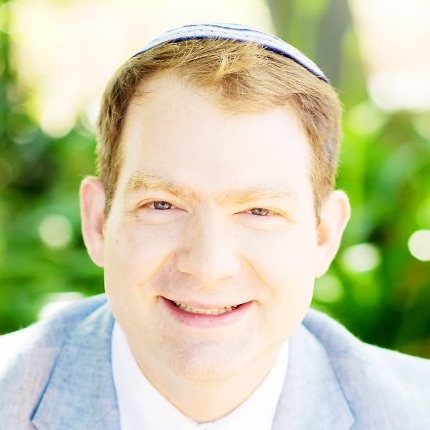
Religion

The day of remembrance
RABBI SAM THURGOOD
But, Rosh Hashanah is an enigmatic festival in many ways. The Torah says almost nothing about it, not telling us (explicitly) that it is the head of the year or the day of judgement; not telling us to make round challah or say tashlich (cast away our sins) in the presence of water, but telling us only two things, that it is a day of the shofar (t’rua), and that it is a day of remembrance (zikaron).
On that second point, our kiddush for Rosh Hashanah actually names the day as Yom HaZikaron, which may sound a little jarring to us, accustomed as we are to this name being associated with Israeli Remembrance Day, the day on which we remember and mourn all the soldiers and victims of terror who have died in establishing, defending, and simply living in our beloved state of Israel.
But there is a great difference between the two remembrance days, and exploring this difference will help us to understand the nature of Rosh Hashanah more deeply. On Israel’s Yom HaZikaron, we are the ones who remember, but on the Yom HaZikaron of Rosh Hashanah, it is we who are remembered. On Israel’s Yom HaZikaron, we take time to think of those who may not be remembered otherwise, many of them young men and women who lost their chance for a future, and descendants of their own, but on Rosh Hashanah, Hashem Himself remembers us – all of us together, the living and the deceased.
But since Hashem doesn’t forget, what does it mean that He remembers? I found my answer to this question while holding one of my small children. Hashem blessed my wife Aviva and I with a daughter (now seven years old) and then, after five years of difficulty and heartbreak, with a twin boy and girl. My children are never far from my thoughts, but as I was holding and laughing with my two-year-old daughter Tzuriya, I could feel the way in which she filled my thoughts and my heart. I didn’t forget my other two children for a moment, but I “remembered” little Tzuriya in an entirely more present and intimate way.
Rosh Hashanah is, at its core, about having that moment with Hashem. About the rest of the world going silent, everything else ceasing to matter for an instant as that relationship between you and Hashem is all there is.
What is that moment? When it is that “our remembrance ascends before the almighty”? When the shofar is sounded. The shofar, which represents both Hashem’s call to us and our call to Him, is a sound that pierces the heavens and the human heart. It’s no wonder that it’s perhaps the most dramatic moment in the entire Jewish year, and that although we have many mitzvot, we don’t treat the shofar as “simply” another mitzvah, but as something special.
In a world of almost eight billion people, it’s easy to feel insignificant. Our country, South Africa, alone has close to the population of the Roman Empire at its height, and there are trends and forces at play that feel so much bigger than we do. Ironically, the information revolution that has turned the world into a global village has exacerbated this phenomenon, as now we’re so much more aware of all that’s happening around the world, from protests in Hong Kong to Brexit (or the lack thereof) in the United Kingdom, to the endless partisan politics of America. And, what can little old me do? Do I matter?
In a difficult year in which I lost my shul to a fire, and saw my Sifrei Torah and so much that I had worked for go up in flames, do I really have the ability to make a meaningful difference?
My daughter, Tzuriya, in the moment in which I was holding her and “remembering” her with all my heart, was in no doubt as to whether she mattered. She knew that she was the centre of my world. The message of Rosh Hashanah as we hear the shofar is that we, too, are the centre of Hashem’s world. The apple of His eye. His honey. One of my favourite verses of the entire liturgy, during the Mussaf Amida is a quote from the book of Jeremiah 31:20:
“Truly, Ephraim [here a stand-in for the Jewish people as a whole] is a dear son to Me, a darling child. For whenever I speak of him, I remember him more and more. That is why My heart yearns for him; I will surely have mercy on him,” says Hashem.
Yes, Rosh Hashanah is a time for judgement, soul searching, and commitment. Imagine a reunion between parent and child after many years. For the first few moments, they are taking one another in, evaluating who and where they are, how they have changed, but the reunion isn’t about judgement, it’s about being together and being loved, being “remembered”.
As Rabbi David Aaron once asked, “How is it that even if everything outside of me tells me that I’m nothing, something within me knows that I’m something?” That something within us is the voice of Hashem, the remembrance that takes places every Rosh Hashanah.
My prayer for us all is that the reunion of Rosh Hashanah is one of love, peace, meaning, and inspiration. One in which we return to ourselves and return to Hashem, and emerge with a renewed sense of significance, confidence, purpose, and holiness.
Shanah Tovah!
- Rabbi Sam Thurgood is the rabbi of Beit Midrash Morasha in Sea Point, Cape Town.




